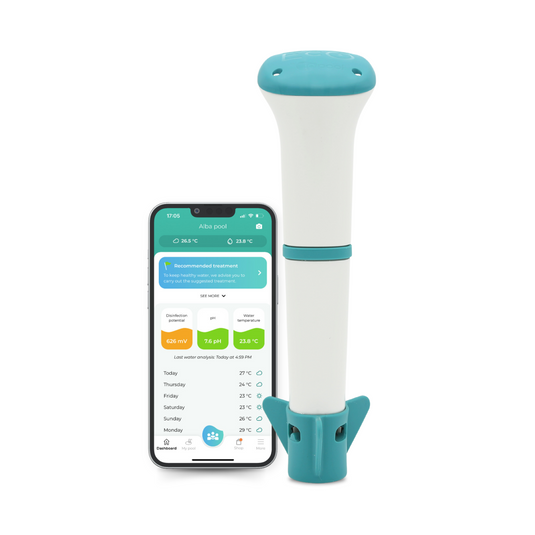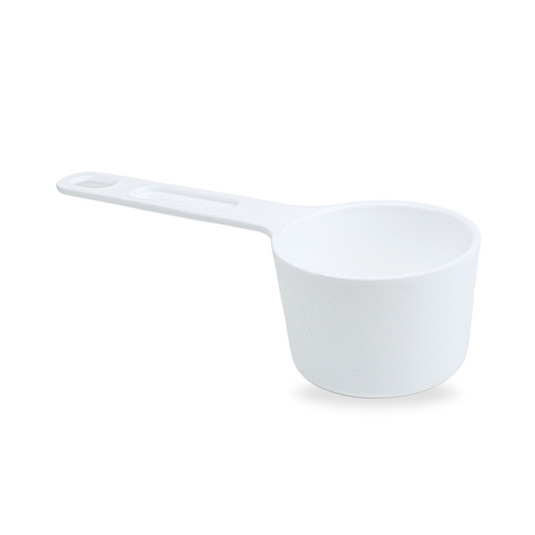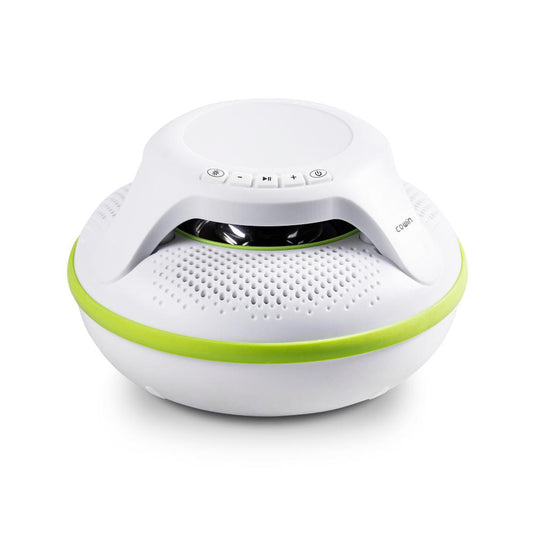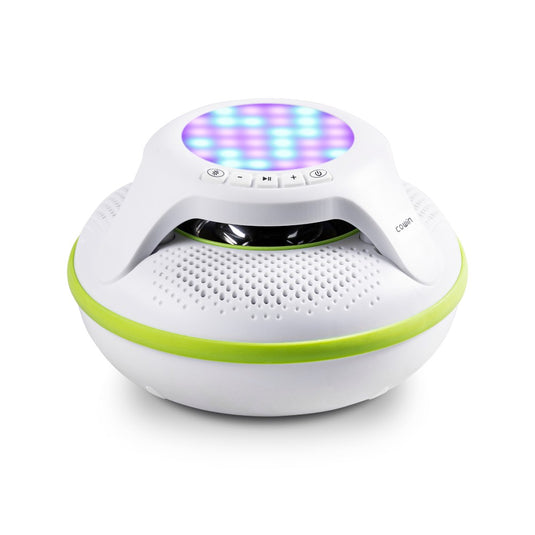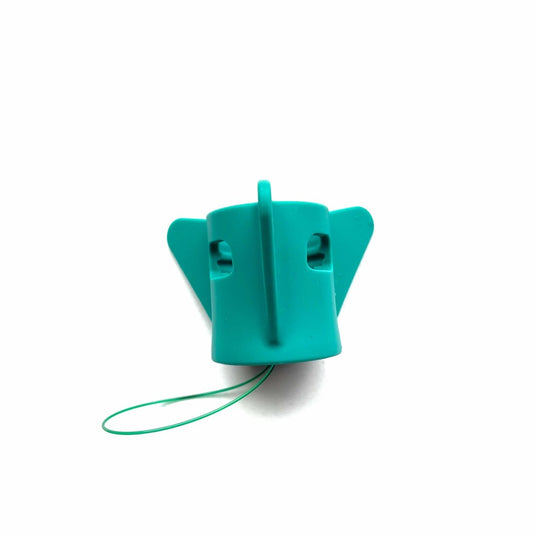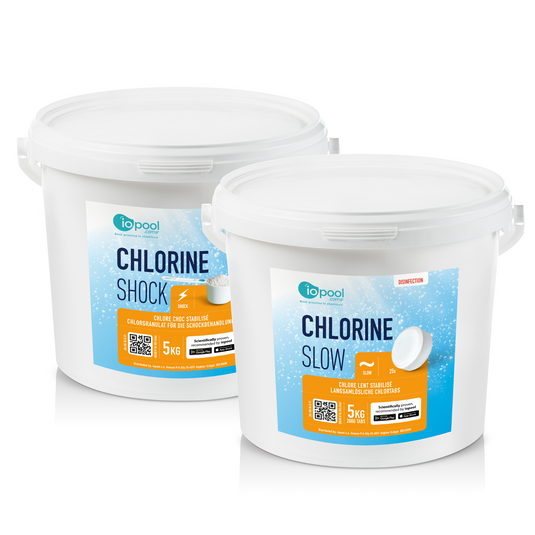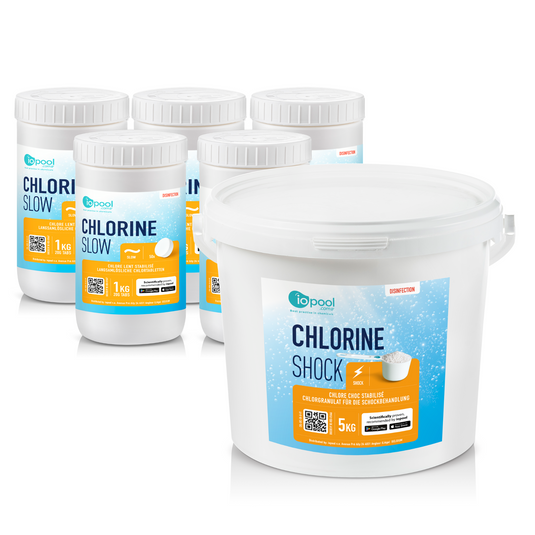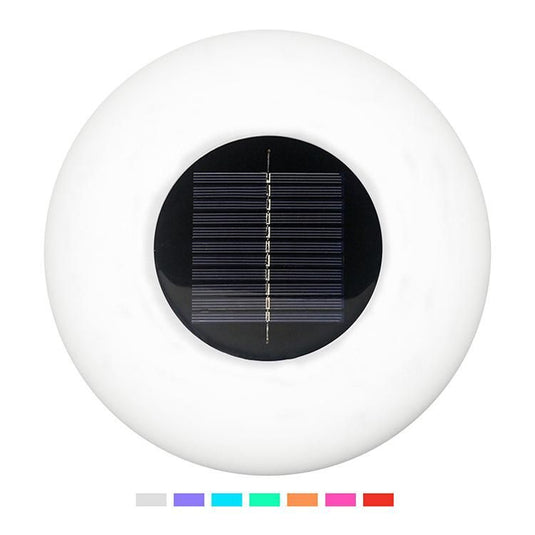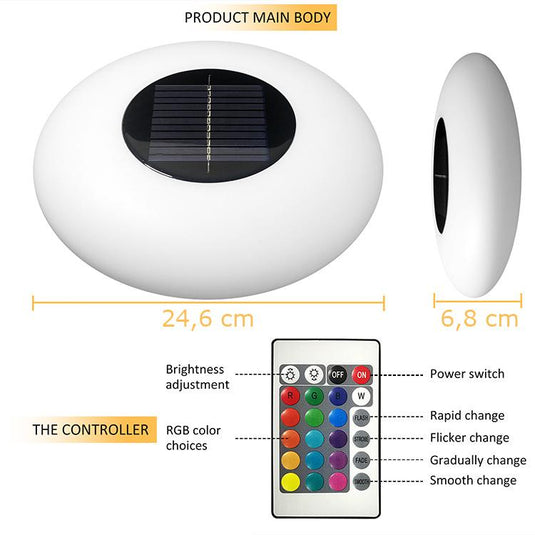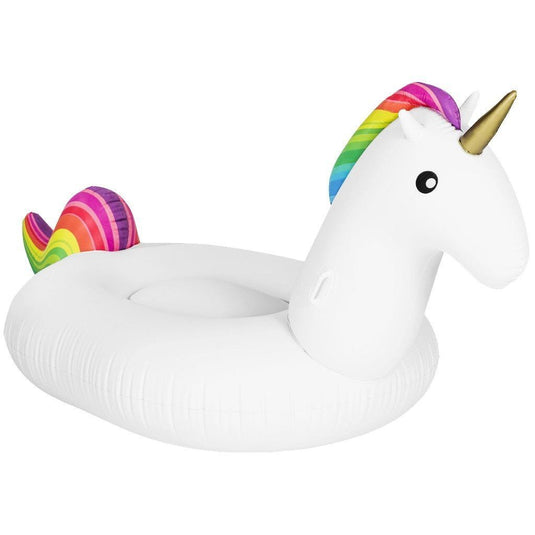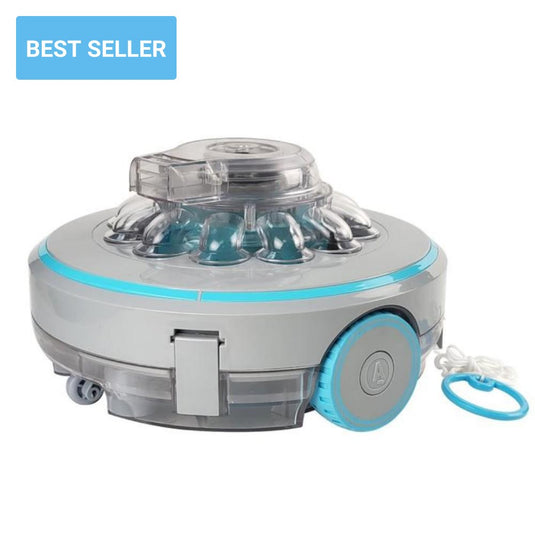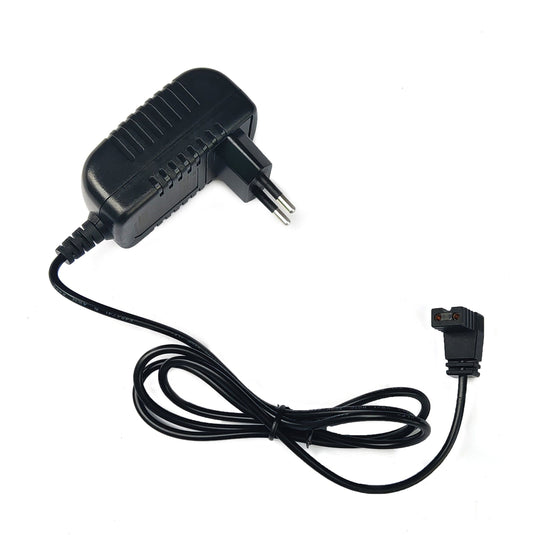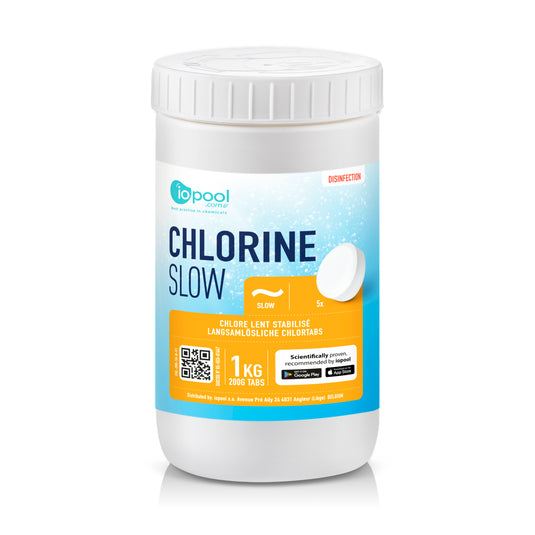Chlor... liegt nicht nur in Ihrem Pool!
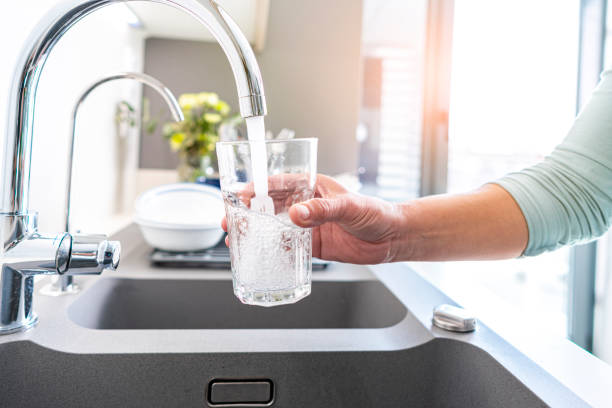
Sie wissen, dass Ihr Poolwasser Chlor enthält, aber Chlor in Ihrem Trinkwasser? Ja, das ist eine Sache. Chlor ist für die Entfernung schädlicher Keime und Verunreinigungen in Ihrem Wasser unerlässlich. Aber manchmal können die Werte zu hoch werden und Probleme verursachen. Heute beantworten wir Ihre Fragen zum Thema Trinkwasser mit Chlor.
Haben Sie Anmerkungen zu dieser Übersetzung? Kontaktieren Sie hello@iopool.com
Ist Chlor im Trinkwasser sicher?
Chlor wird häufig als Desinfektionsmittel in Trinkwasseraufbereitungsanlagen zur Beseitigung schädlicher Krankheitserreger wie Bakterien und Viren. Die Zugabe von Chlor zum Wasser ist von entscheidender Bedeutung für die Vorbeugung wasserbedingter Krankheiten. Dennoch manche Menschen haben möglicherweise immer noch Bedenken hinsichtlich der Sicherheit von Chlor im Trinkwasser.Zu viel Chlor im Trinkwasser kann potenziell gesundheitliche Auswirkungen haben, die Risiken gelten jedoch bei den bei der Wasseraufbereitung verwendeten Konzentrationen im Allgemeinen als minimal.
DieUS-Umweltschutzbehörde (EPA) regelt die maximal zulässige Konzentration Der Chlorgehalt im Trinkwasser soll 4 Milligramm pro Liter (mg/L) betragen. Die WHO-Richtlinien und die EU-Trinkwasserrichtlinie Legen Sie den Grenzwert auf 5 Milligramm pro Liter Wasser fest. Dieser Wert gilt für die meisten Menschen als sicher und hat sich bei der Entfernung von Keimen als wirksam erwiesen.
Welche gesundheitlichen Risiken bestehen beim Trinken von Leitungswasser mit Chlor?
Obwohl das Trinken von mit Chlor behandeltem Leitungswasser als sicher gilt, reagieren manche Menschen möglicherweise empfindlicher auf die Wirkung von Chlor – insbesondere Menschen mit Asthma oder anderen Atemwegserkrankungen.
Chlor kann mit Substanzen im Wasser reagieren und Nebenprodukte wie Trihalomethan (THM) bilden, von denen bekannt ist, dass sie Asthmasymptome verschlimmern.
THMs wurden auch mit den folgenden Gesundheitsproblemen in Verbindung gebracht: Reproduktions- und Entwicklungsprobleme, erhöhtes Risiko für Dickdarm- und Nierenkrebs, Schwangerschaftskomplikationen und Geburtsfehler bei Säuglingen, Lebensmittel Allergien und Empfindlichkeiten.
Bedeutet das, dass Sie sich Sorgen machen sollten, wenn Sie mit Chlor behandeltes Wasser aufbereiten? Nein. Der THM-Gehalt im Trinkwasser wird von der EPA reguliert und unter Werten gehalten, die nachweislich schädlich sind.
Wie können Sie feststellen, ob Ihr Leitungswasser zu viel Chlor enthält?
Wenn Sie befürchten, dass Ihr Trinkwasser zu viel Chlor enthalten könnte, sollten Sie auf folgende Anzeichen achten:
- Starker Geruch: Chlor hat einen ausgeprägten, starken Geruch, der bereits in geringen Konzentrationen wahrgenommen werden kann. Wenn Ihr Leitungswasser stark nach Chlor riecht, kann dies ein Hinweis darauf sein, dass der Chlorgehalt zu hoch ist.
- Unangenehmer Geschmack: Während ein gewisser Chlorgeschmack im Leitungswasser normal und zu erwarten ist, kann ein starker oder unangenehmer Geschmack darauf hinweisen, dass das Der Chlorgehalt ist zu hoch.
- Haut- und Augenreizungen: Hohe Chlorwerte im Leitungswasser können Haut- und Augenreizungen sowie bei manchen auch Atemprobleme verursachen Menschen. Wenn eines dieser Symptome nach dem Duschen oder Baden auftritt, kann dies ein Zeichen dafür sein, dass der Chlorgehalt zu hoch ist.
- Verfärbung: In seltenen Fällen kann ein hoher Chlorgehalt im Leitungswasser zu Verfärbungen von Kleidung oder anderen Gegenständen führen, die damit in Berührung kommen das Wasser.
Wenn Sie den Verdacht haben, dass der Chlorgehalt in Ihrem Leitungswasser zu hoch ist, können Sie sich an Ihren örtlichen Wasserversorger wenden und Informationen zum Chlorgehalt in Ihrer Wasserversorgung anfordern.
Sie können auch ein Heimwassertestset erwerben, um den Chlorgehalt selbst zu testen. Wenn festgestellt wird, dass der Wert über dem empfohlenen Bereich liegt, können Sie die Installation eines Wasserfiltersystems in Betracht ziehen, das speziell zur Entfernung von Chlor entwickelt wurde.
Wie entfernen Heimfilter überschüssiges Chlor?
Hauswasserfilter können Chlor aus Leitungswasser durch einen Prozess namens Aktivkohlefiltration entfernen. Aktivkohle zieht eine Vielzahl von Schadstoffen an und absorbiert sie, darunter Chlor, Pestizide und flüchtige organische Verbindungen (VOCs).
Wenn Leitungswasser durch einen Aktivkohlefilter fließt, wird das Chlor von der Oberfläche der Kohle angezogen und in ihrer porösen Struktur eingeschlossen. Dieser als Adsorption bezeichnete Prozess entfernt das Chlor aus dem Wasser und macht es sauberer und trinkbarer.
Aktivkohlefilter gibt es in verschiedenen Formen, darunter Wasserhahnfilter, Aufsatzfilter, Untertischfilter und Filter für das ganze Haus. Die Wirksamkeit des Filters hängt von der Qualität und dem Design des Filters sowie vom Chlorgehalt im Wasser ab.
Damit der Kohlefilter weiterhin effektiv funktioniert, müssen Sie ihn häufig austauschen – die Häufigkeit hängt davon ab, wie oft Sie Ihren Filter verwenden.
Können Haushaltsfilter Chlornebenprodukte entfernen?
Obwohl Kohlefilter bei der Entfernung von Chlor aus Leitungswasser gute Arbeit leisten, ist dies nicht so effektiv wie die Beseitigung des Nebenprodukts Chloramin.
Aber zuerst: Was ist Chloramin?
Chloramin ist ein Desinfektionsmittel, das dem Wasser zugesetzt wird – es besteht aus Chlor und Ammoniak. Aber im Gegensatz zu Chlor ist Chloramin nicht leicht zu erkennen, da es keinen charakteristischen Geruch oder Geschmack hat.
Während Chloramin trinkbar ist, kann diese Verbindung mit bestimmten Arten von Sanitärmaterialien wie Bleirohren reagieren und zur Auswaschung von Blei in das Leitungswasser führen.
Standard-Aktivkohlefilter filtern Chloramin nicht effektiv. Daher müssen Sie einen Umkehrosmose-Wasserfilter kaufen.
Chloramin mit einem Umkehrosmose-Wasserfilter entfernen?
Zur Entfernung von Chloramin verfügt das RO-System über mehrere Filterstufen. Erstens gibt es einen Sedimentfilter, der größere Partikel wie Sand und Rost aus dem Wasser entfernt. Dann gibt es einen Aktivkohlefilter, der organische Verbindungen, Chlor und Chloramin entfernt. Der Kohlefilter ist speziell behandelt, um Chloramin zu entfernen.
Das wichtigste Stadium ist die Membran. Dabei handelt es sich um eine dünne Schicht, die reines Wasser von Verunreinigungen trennt. Die Membran wirkt wie ein Sieb, das bis zu 99 % der verbleibenden Verunreinigungen, einschließlich Chloramin, entfernt.
Enthält Flaschenwasser mehr Chlor als Leitungswasser?
Flaschenwasser ist nicht unbedingt chlorfrei, da es bei der Wasseraufbereitung auch mit Chlor desinfiziert werden kann.
Die USA Die Food and Drug Administration (FDA) regelt die Qualität des in den Vereinigten Staaten verkauften Flaschenwassers und verlangt, dass es denselben strengen Standards für den Schutz der öffentlichen Gesundheit entspricht wie Leitungswasser. Dazu gehört die Festlegung von Grenzwerten für Desinfektionsmittel wie Chlor und Chloramin, die zur Wasseraufbereitung und zur Beseitigung schädlicher Krankheitserreger eingesetzt werden.
Wir müssen auch erwähnen, dass die Qualität von Flaschenwasser je nach Quelle und Art der Behandlung, der es unterzogen wird, variieren kann. Einige Arten von Flaschenwasser, wie z. B. Quellwasser oder Mineralwasser, werden möglicherweise überhaupt nicht mit Chlor behandelt, während andere möglicherweise einen höheren Chlorgehalt enthalten, wenn sie an einem Ort mit einem hohen Anteil an organischer Substanz stammen.< /p>
Was passiert, wenn Sie Poolwasser einnehmen?
Während wir uns mit dem Thema Chlor befassen, müssen wir die Sache klarstellen. Wenn Sie beim Schwimmen etwas Poolwasser in den Mund bekommen, machen Sie sich keine Sorgen. Kleine Mengen chlorhaltiges Poolwasser verträgt Ihr Körper problemlos. Aber gechlortes Poolwasser zu trinken ist eine andere Geschichte.
Wenn Sie eine größere Menge Poolwasser schlucken oder das Wasser mit Bakterien oder anderen Schadstoffen verunreinigt ist, können einige Symptome auftreten. Dazu können gehören: Übelkeit oder Erbrechen, Durchfall, Magenkrämpfe usw.
Wir wissen, dass Fehler passieren. Wenn Sie versehentlich chloriertes Poolwasser verschlucken, spülen Sie Ihren Mund mit frischem Wasser aus und vermeiden Sie es, noch mehr Poolwasser zu trinken. Wenn Sie nach dem Verschlucken von Poolwasser Symptome wie Erbrechen oder Durchfall verspüren, suchen Sie sofort einen Arzt auf.
Was ist, wenn Sie Poolwasser abkochen, ist es dann sicher?
Abkochendes Poolwasser kann dazu beitragen, einige Verunreinigungen, einschließlich Bakterien und Viren, die im Wasser vorhanden sein können, zu entfernen. Durch kochendes Poolwasser wird der Chlorgehalt im Wasser jedoch weder entfernt noch verringert.
Zusammenfassend
Ihr örtlicher Wasserversorger fügt Ihrem Trinkwasser Chlor hinzu, um es sicherer zu machen. Während die normalen Mengen nicht schädlich sind, kann Chlor bei manchen Menschen Probleme verursachen. Wenn Sie feststellen, dass Ihr Leitungswasser zu viel Chlor enthält, können Sie Filter kaufen.

